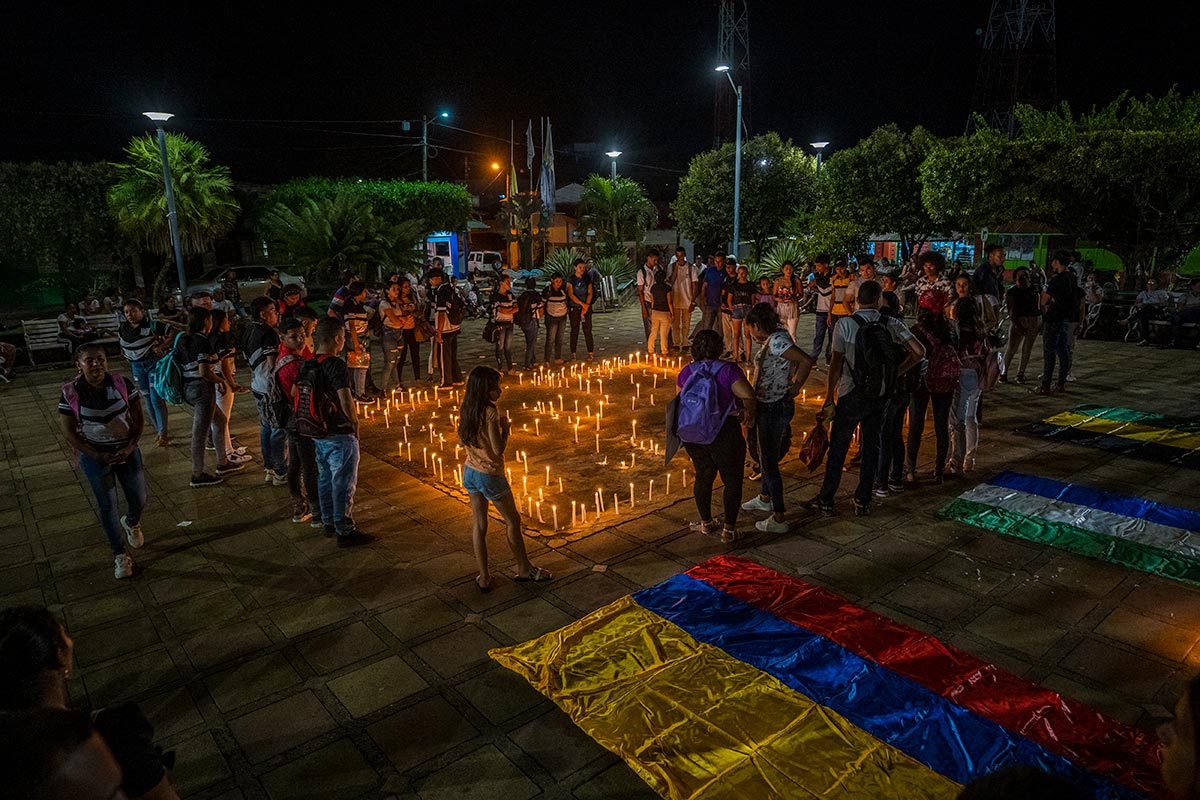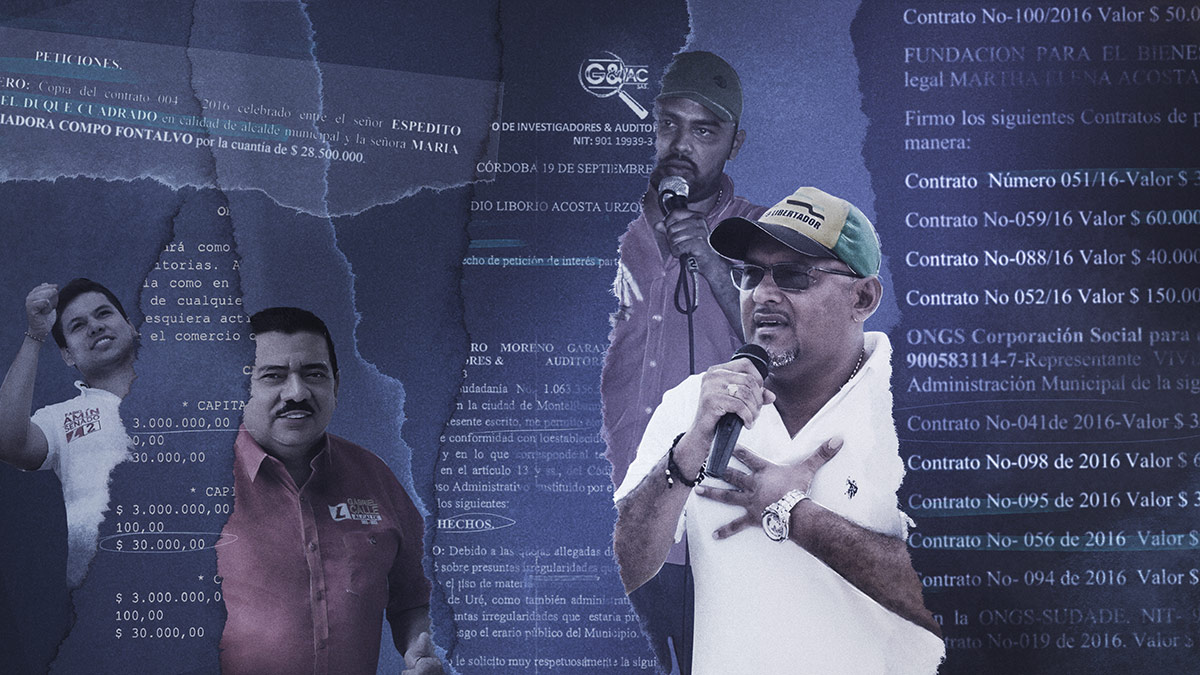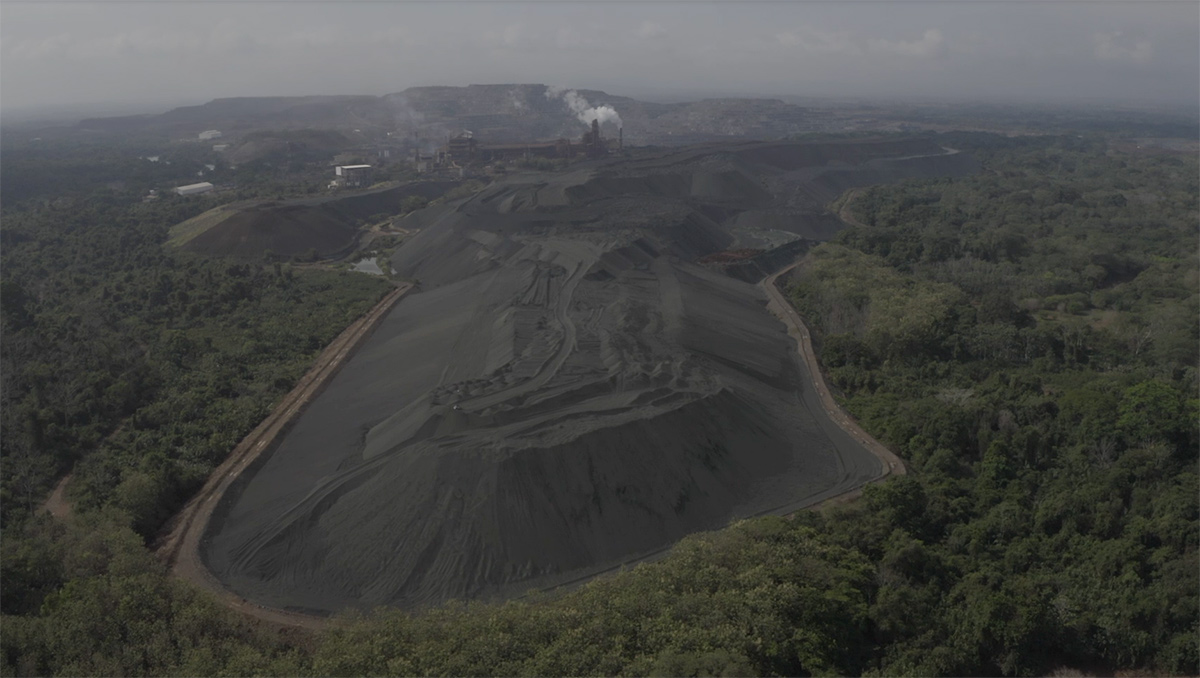Colombian journalist Rafael Moreno contacted Forbidden Stories last year to share sensitive documents with the non-profit media group in case he was murdered.
Nine days later, he was dead.
It was just after sunset on October 16, and Moreno was closing up the bar and grill he had recently opened to help make ends meet in the city of Montelibano. A man walked in, pulled out a revolver, and fired three shots at Moreno, killing him instantly, according to police records.
The assassin is still on the loose, but he failed to silence Moreno even in death.
Forbidden Stories, a network of journalists whose mission is to protect, pursue, and publish the work of other journalists facing threats, prison, or murder, published on Tuesday its investigations into mining companies and local government officials in Córdoba, a northern region that is a key drug smuggling route and is plagued by poverty and violence.
At some point, Moreno discovered information that put his life at risk. A few months before his murder, he found a note attached to his motorcycle –– along with a bullet.
“Now you know that we know all your movements, where you go, when you wake up, when you go to sleep,” said the note, which he read out in a video on his main journalism platform, a Facebook page called Voces de Córdoba.
“We are not going to forgive you for what you are doing,” the note said. “So now you know, my friend, that the rest of the magazine of this 9 mm is ready for you.”
Moreno joined the Forbidden Stories “SafeBox” network. This allows threatened journalists to upload sensitive information to a secure platform in case they are killed, detained or otherwise prevented from carrying out their work.
After his death, Forbidden Stories organized a consortium of 33 media to build on the information Moreno had uncovered.
 Funeral vigil in memory of Rafael Moreno in Puerto Libertador, Córdoba (Colombia), October 26, 2022. (Photo: Diego Cuevas/El País)
Funeral vigil in memory of Rafael Moreno in Puerto Libertador, Córdoba (Colombia), October 26, 2022. (Photo: Diego Cuevas/El País)
Moreno had been particularly focused on Espedito Duque, a former mayor of Puerto Libertador, a city in the department of Córdoba, as well as his successor, Eder John Soto.
A document he shared with Forbidden Stories accused Duque of creating "a certain number of structures" for his close friends and family. Duque would then contract with them to "facilitate the appropriation of public resources."
Journalists from the Colombian investigative news outlet Cuestion Publica and CLIP, a Latin American journalism platform, continued Moreno's investigation and found that 96 percent of the total value of the bids put out by the mayor’s office between 2016 and 2020 were won by just five companies –– none of which had prior experience with public tenders.
Three of the companies belong to Martin Montiel Mendoza, who, according to multiple sources, is close to Duque’s wife. Between 2016 and 2022, the mayor’s office signed 56 contracts with Montiel’s companies that ranged from organizing sports and cultural events to managing parks and libraries.
In total, the contracts were worth almost US$1 million, and half were signed without a public tender being offered.
While looking into municipal contracts, the reporters discovered an apparent link between Puerto Libertador Mayor Soto and an alleged associate of the Clan del Golfo, Colombia’s largest drug cartel.
Soto was the manager of the Puerto Libertador hospital when a doctor working there allegedly registered injured cartel members under fake names, so they could not be traced by authorities. The two men appeared in several photos together. The doctor is scheduled to face trial in April, and Soto is on the list of witnesses for the defense.
Moreno was kidnapped and held briefly by members of the Clan del Golfo in 2021 after he publicly denounced and investigated payments from public funds to armed groups.
To Duque, who agreed to respond to the consortium, this felt like an act of personal revenge.
"After I stopped supporting him, he declared that he was going to do everything possible to destroy the political project," Duque said. "He was filled with hate, rage, and resentment."
Duque, for his part, denied having supported the creation of entities so that they could benefit from contracts with the municipality.
"Everything is false, it is absolutely false," he said, adding that he has “achieved great results" that have earned him "recognition as the best mayor in the department."
Neither Eder John Soto nor Montiel Mendoza have responded to multiple requests for comment.
 Some of the people Moreno was investigating (from left to right) Gabriela Calle Aguas (son of former mayor of Montelíbano), Gabriel Calle De Moya (former mayor of Montelíbano), Juan David Duque (son of the former mayor Puerto Libertador), Espedito Duque (former mayor of Puerto Libertador). (Photo: Mélody Da Fonseca/Forbidden Stories)
Some of the people Moreno was investigating (from left to right) Gabriela Calle Aguas (son of former mayor of Montelíbano), Gabriel Calle De Moya (former mayor of Montelíbano), Juan David Duque (son of the former mayor Puerto Libertador), Espedito Duque (former mayor of Puerto Libertador). (Photo: Mélody Da Fonseca/Forbidden Stories)
Mining and Murder
Moreno was also investigating mining projects in the Córdoba region. Journalists from media including El Espectador, Radio France International and France 24 built on Moreno’s research into companies that were allegedly flouting regulations.
In one case, journalists discovered that 20 women from the Afro-Colombian community of San José de Uré had been forced to undergo hysterectomies. The community is near the Cerro Matoso nickel mine, which had been found in a Colombian court to have polluted the environment, and caused health problems for the local population. Each of the women told journalists that they had their wombs removed after suffering the same symptoms: severe bleeding and unbearable pain.
In a statement to Forbidden Stories and its partners, Cerro Matoso denied all accusations regarding air pollution.
“No measurement [of air pollution in 2022] has reached the limit of the annual average of the guidelines defined by the World Health Organization,” he wrote. The company also invoked its transparency, saying that all measurements from its sampling stations are available online.
South32, the owner of the mine, and its powerful network of lawyers, which included Eduardo Cifuentes Muñoz, the former president of Colombia’s Constitutional Court, appealed the case.
They argued that “the court had misinterpreted the medical report published by the Institute of Legal Medicine and Sciences,” specifying that the “relation of direct causality was not established regarding the impact seen in the population and the exploitation of Cerro Matoso.”
Company lawyers argued that it was impossible to attribute the high levels of nickel in the samples to the mine, saying that other “external factors” may have influenced the results.
In June 2022, Moreno had also announced that he would investigate Carbomas, a company that was mining carbon in the municipalities of Puerto Libertador and Montelíbano. He suspected that Carbomas had been operating without a license, and hadn’t consulted local communities, which is required by law in Colombia under most circumstances.
Additionally, previously unreleased satellite images from Planet Labs, obtained by the OCCRP – a member of the consortium – suggest that in May 2022, at the time of Rafael Moreno's accusations, the mine was already being exploited, although the company did not yet have an environmental license.
"This image clearly shows that the mine was in the exploitation phase, given the advanced level of deforestation and the presence of cavities," said Guadalupe García Prado, director of the Guatemala-based Extractive Industries Observatory, to Forbidden Stories.
Carbomas did not respond to questions about the start date of its mining operations.
According to the CVS document, the company applied for an environmental license two months after Moreno’s initial freedom of information request, on June 21, 2022. Its license was approved several months later, in November – about a month after Moreno’s killing.
Journalists have now confirmed Moreno’s suspicion: Although Carbomas currently has the required environmental license, the company was engaged in unlicensed drilling and excavation at a new mine during the time Moreno was investigating it.
The month after Moreno announced his intended investigation into Carbomas to his 50,000-plus Facebook followers, he received a death threat attached to his motorbike.
It is unclear what prompted the threat –– any of his investigations could have angered the wrong people –– but Moreno seemed undeterred.
“If you have to kill me, kill me,” he said in a video three weeks later. “But I am telling you straight out: you won’t silence me.”
 Drone view of the Cerro Matoso mine. (Photo: France 24)
Drone view of the Cerro Matoso mine. (Photo: France 24)



